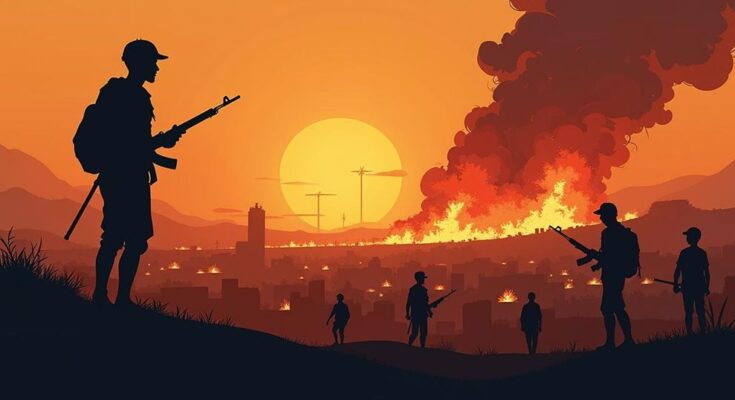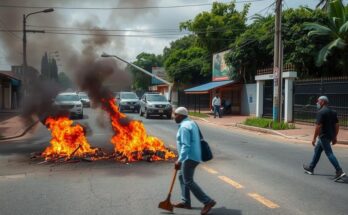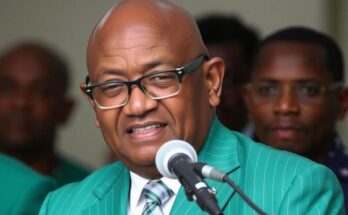Chad, under President Mahamat Idriss Déby Itno, has experienced ongoing civil conflict, human rights abuses, and economic challenges amidst attempts for democratic governance. Following the death of Déby in 2021, a military council led by his son assumed control during a period of uncertainty, reflecting the continuing instability in the nation.
Chad has faced a tumultuous political history characterized by conflict, civil war, and a fraught relationship with neighboring countries. After seizing power in a coup in December 1990, Mahamat Idriss Déby Itno established new governance in Chad as president after his predecessor, Hissène Habré, fled the country. Although Déby initially promised to pursue a multiparty democracy, his administration soon faced significant challenges, including coup attempts and ongoing struggles against various rebel factions. In 1996, he held Chad’s first multiparty presidential elections, emphasizing his hold on power despite allegations of electoral fraud. Dealing with persistent opposition revolts by groups such as the Mouvement pour la Démocratie et la Justice au Tchad (MDJT), Déby’s regime was noted for its human rights abuses and allegations of corruption. By the early 2000s, Chad also contended with substantial refugee flows from the ongoing Darfur crisis in Sudan, prompting an EU-led peacekeeping effort, which transitioned into UN operations. With oil production commencing in 2003, Chad seemed poised for economic improvement; however, revenues were often diverted to suppress dissent rather than fund social initiatives. In 2013, Habré was arrested in Senegal and later tried for crimes against humanity committed during his regime. His trial represented a step toward accountability in the region. In the years that followed, Chad grew increasingly involved in combating regional terrorism, particularly against Boko Haram, which adapted its modus operandi to strike within Chad’s territory, resulting in heightened security responses. Déby’s administration maintained a strong military presence internationally, notably sending troops to assist in operations against militant threats. Despite international support, Déby’s government remained entrenched and repressive, leading to large-scale protests prior to the April 2016 elections. Déby won that election amid widespread allegations of manipulation and fraud. Even after a controversial constitutional change in 2018 that aimed to extend presidential power, Déby was reelected in 2021. However, he was killed shortly after the announcement of his election victory while battling rebels, resulting in the military’s assumption of power and the establishment of a transitional governance body led by his son, Mahamat Idriss Déby Itno. This series of events underscores a legacy of instability and ongoing struggles within Chad’s political landscape.
This article discusses the political history of Chad, focusing on the timeline of events since the rise to power of Mahamat Idriss Déby Itno after ousting Hissène Habré. It chronicles key moments such as the establishment of democracy, ongoing civil conflict, human rights issues, economic developments, and the impact of external threats, including terrorism and refugee crises from neighboring conflict zones. The narrative highlights the interplay between internal governance challenges and foreign policy, as well as the evolution of Chad’s political landscape amid persistent unrest.
Chad’s political history is marked by a continuous struggle for governance amid internal strife and external pressures. Despite initial promises of democratization, under Déby’s rule, governance was characterized by repression and allegations of corruption. The challenges posed by regional conflicts and terrorism illustrate the complexity of securing stability in Chad. The transition to military rule following Déby’s death may signal yet another chapter of uncertainty in a nation grappling with its political identity and future.
Original Source: www.britannica.com




